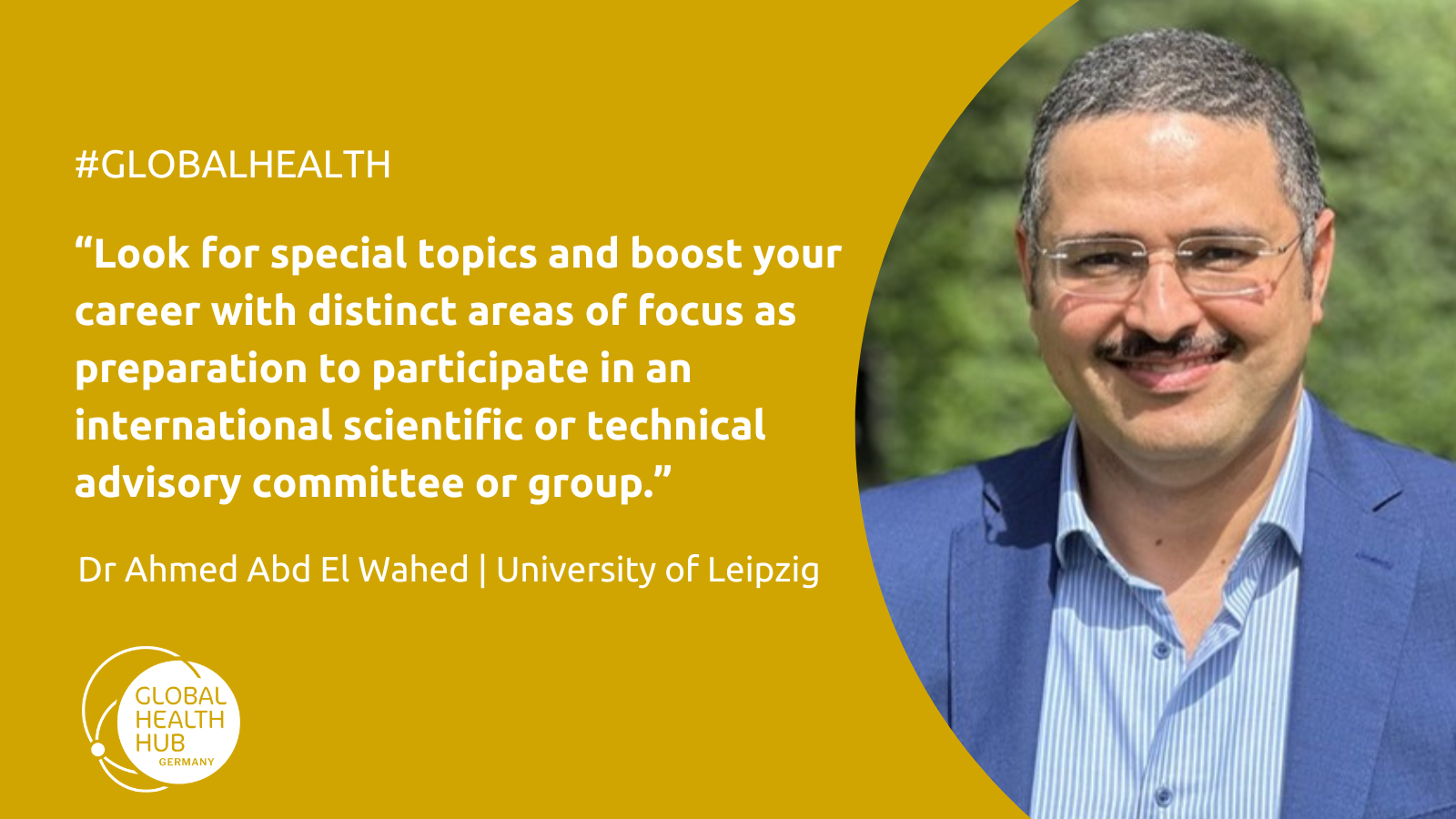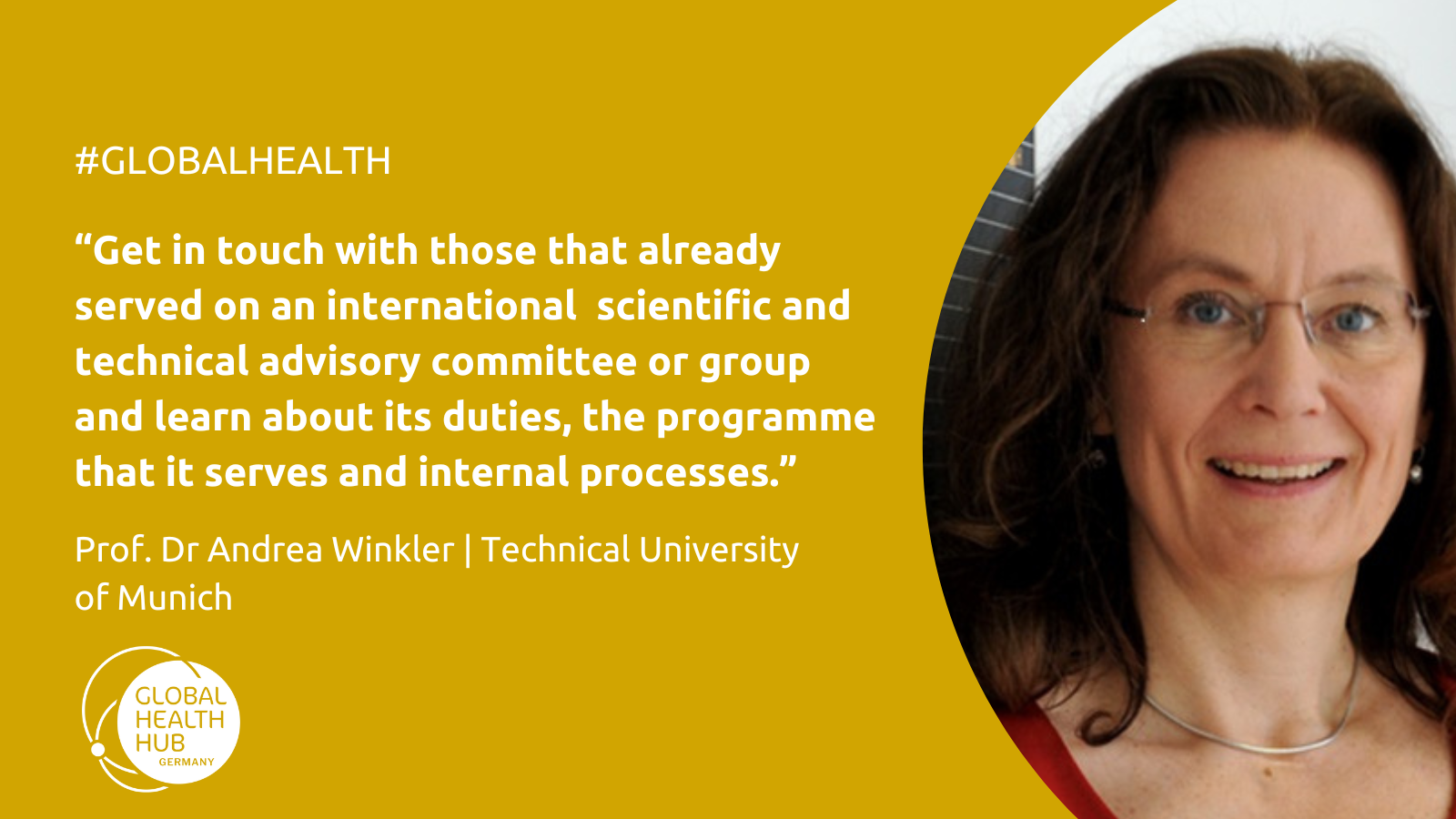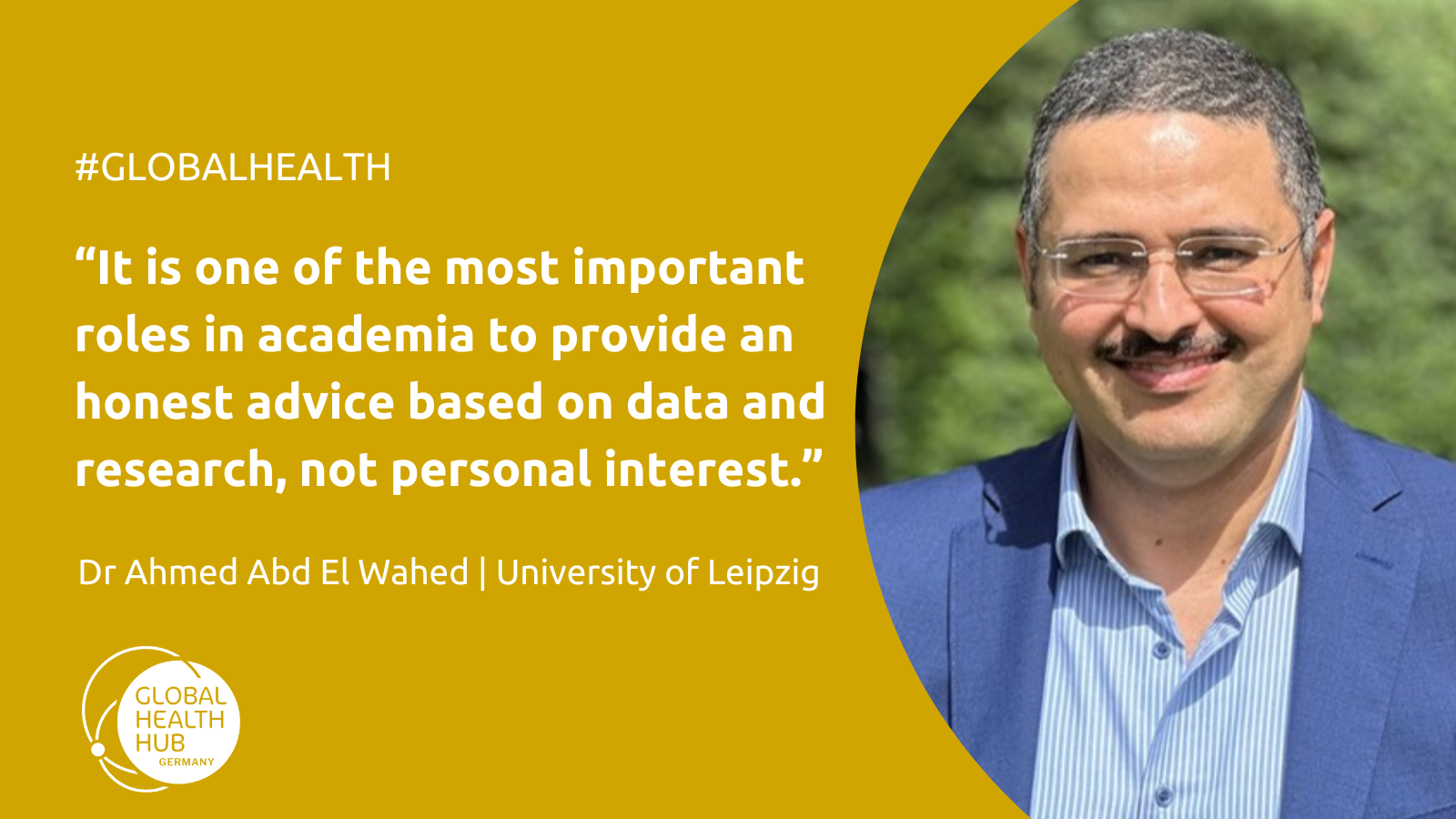7 Steps to Participate in International Scientific and Technical Advisory Committees and Groups

Prof. Dr Andrea Winkler and Dr Ahmed Abd El Wahed shared their experiences with us as members of international scientific and technical advisory committees and groups. Learn more on how to get involved in such expert groups.
Reader's note: This article is published simultaneously on the websites of the Global Health Hub Germany and the German Alliance for Global Health Research (GLOHRA) as part of their cooperation.
At the latest since the Covid-19 pandemic brought the world to a standstill, it should be common sense: scientific advice is of utmost importance to tackle global health challenges. Also apart from such extreme emergencies, international scientific and technical advisory committees and groups (abbreviation used here: STACGs) are key in promoting evidence-based political measures in order to reach Sustainable Development Goal 3 (SDG 3): Ensure health and foster well-being for all. Are you wondering how you can contribute to this? Explore the seven most important steps to participate in international STACGs.
1st Step: Stay up to Date
From Antimicrobial Resistance to Zika – international STACGs are as numerous and diverse as the field of global health itself. Alone the WHO counts more than 100 of them (by November 2023). With many other international organisations in global health, it is worthwhile to keep your eyes peeled for open calls.
Prof. Dr Andrea Winkler, a neurologist at the Technical University of Munich and co-head of TUM's Center of Global Health, is active in the TDR (the Special Programme for Research and Training in Tropical Diseases) Scientific and Technical Advisory Committee (WHO-TDR). Dr Ahmed Abd El Wahed heads the lab of the Institute of Animal Hygiene and Veterinary Public Health, University of Leipzig and is a member of the WHO Strategic and Technical Advisory Group for Neglected Tropical Diseases (STAG for NTDs). Whereas Prof. Dr Winkler was recommended by a colleague, Dr Abd El Wahed applied upon learning “about the call for advisors via the mailing list from WHO-TDR". This underlines that obtaining an overview has to go hand in hand with staying up to date: when new international STACGs are to be established or existing ones expanded, timing is key not to miss any important deadline. Networks such as the Global Health Hub Germany and GLOHRA, of which both Prof. Dr Winkler and Dr Abd El Wahed are members, also circulate some of these opportunities.
2nd Step: Become an Expert
The purpose of international STACGs in global health is to inform policymaking processes on global health issues and promote consensus building for high‐level political messages. Politicians rely on top-notch advice of renowned and experienced global health scholars and professionals.
According to Dr Abd El Wahed his in-depth knowledge on One Health turned out to be a very precious resource for his involvement with the STAG for NTDs. “Look for special topics and boost your career with distinct areas of focus as preparation to participate in an international scientific or technical advisory committee or group”, recommends Dr Abd El Wahed. In this context, it can be helpful to keep an eye on lectures or training courses to deepen your expertise or learn new skills in global health.
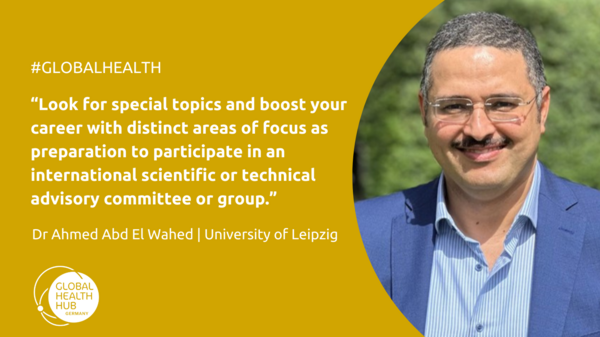
3rd Step: Move with Intention
Reflecting on your motivation to participate can help you find a clear focus before applying for a position in an international STACG. Prof. Dr Winkler suggests: ”Ask yourself what the reason is for joining an international scientific and technical advisory committee or group: Is it to connect your own research to the governance level or would you like to get insight into something not so closely related to your own research?”.
Answering this question is also crucial for your long-term involvement. On the one hand, it can make you become aware of your potential role in contributing to an international STACG and on the other hand it is helpful in regulating your expectations and thus, maintaining your motivation. In order to align your aspirations with reality, do not hesitate to seek first-hand insights. “Get in touch with those that already served on an international scientific and technical advisory committee or group and learn about its duties, the programme that it serves and internal processes.”, recommends Prof. Dr Winkler.
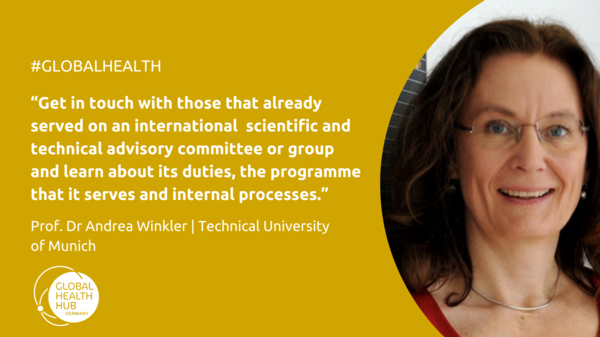
4th Step: Challenge Yourself to Grow
It can be useful to familiarise yourself with the structures and functions of international organisations. This can feel like a step into unknown territory, coming from a background in natural sciences: Political terminology, processes and working methods - navigating the cosmos of international organisations can be overwhelming at first.
Dr Abd El Wahed emphasises: “Keep yourself informed on international organisations and their activities by reading reports, attending events or following current negotiations.” In addition, initiatives such as Youth4Health of the WHO Regional Office for Europe or the Youth Delegates Programme of the German Federal Ministry of Health, are excellent opportunities for young global health actors to enter the stage of international organisations.
5th Step: Get Inspired
Contributing to international SATCGs is a rewarding opportunity, fueling your personal skills and competences. According to Dr Abd El Wahed “it can be a challenge to reach a consensus on the best recommendations for the roadmap 2030 to eliminate NTDs”. At the same time “the conversation and engagement with other colleagues at the international scientific and technical advisory committee is very inspiring and a good way to put one’s own work into perspective“, notes Prof. Dr Winkler. Thereby for both, Prof. Dr Winkler and Dr Abd el Wahed, the workload is manageable with 1-2 meetings per year and “a time investment so far of 3-4 hours per month on average”, estimates Prof. Dr Winkler.
6th Step: Make an Impact
Moreover, Prof. Dr Winkler and Dr Abd El Wahed underline the importance of science as a vehicle to drive change on a policy level. “Serving in an international scientific and technical advisory committee is a good way to take my accumulated knowledge and expertise one step further and create impact at a programmatic/governance level of an international organisation” emphasises Prof. Dr Winkler. In addition, Dr Abd El Wahed encourages to "engage more in 'science for direct impact' in order to assure the conduction of the right intervention, whenenver needed."
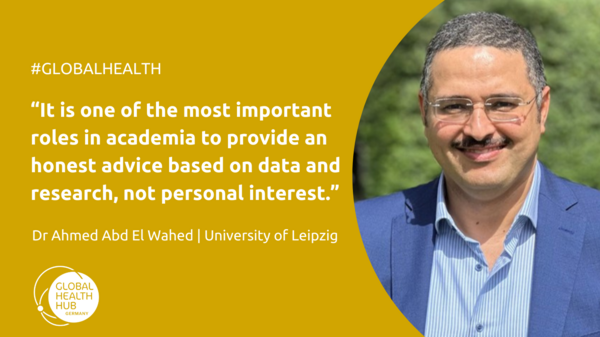
7th Step: Serve a Higher Purpose
Not least, serving in international STACGs in global health is not only an enriching experience but also an honorable and humbling task: at the end of the day, it is all about achieving SDG 3. “It is one of the most important roles in academia to provide an honest advice based on data and research, not personal interest”, highlights Dr Abd El Wahed.
Ready to contribute with your expertise to SDG 3 with science that has a direct impact on global health? Get started with these seven steps to prepare yourself for a position in an international STACG.
Image source of the top picture: freepik
Image source of Prof. Dr Andrea Winkler’s portrait photo: Prof. Dr Andrea Winkler
Image source of Dr Abd El Wahed’s portrait photo: Uwe Truyen
